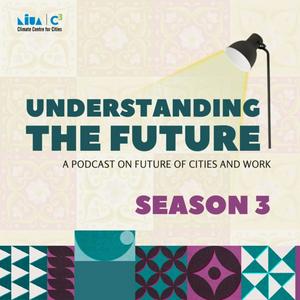Urban River Management Plan with Rajiv Ranjan Mishra | Understanding the Future | Season 3
Shri Rajiv Ranjan Mishra is the Technical Advisor to the NIUA and was previously the Director General for the National Mission on Clean Ganga. In this episode, ‘Understanding The Urban River Management Plan’ with Shri Rajiv Ranjan Mishra, he helps us understand in-depth Urban River Management and why it has become a necessity for our cities and challenges due to urban sprawls. He explained how we can clean our rivers, and water bodies and develop an alliance for the cities on the same river.
We discussed in-depth working on the basin and sub-basin levels, how to effectively manage STPs of various capacities, and how we can move towards integrated urban water management. We discussed the need for healthy rivers and developing public-private partnerships in developing the infrastructure to manage the water and developing the whole ecosystem of river management. We further discussed the new innovations and leveraging the river without harming the river. He also helped us understand the administration challenges, and how city officials can take the initiative from the Urban River Management Plan and its other guidelines for the benefit of the city. We also discussed the concept called River Cities, how it functions, what are the initiatives, and what is its reception on the field. Lastly, we discussed the different skill sets required to develop a good Urban River Management Plan.
You can listen to the podcast on Spotify, Apple Podcasts, Google Podcasts, Gaana, JioSaavn & Youtube. Also, follow Climate Centre for Cities on Social Media for more updates on podcasts, blogs, and newsletters.
Respective links can be accessed here: https://linktr.ee/ccube
To know more about the Climate Centre for Cities: http://c-cube.niua.org/
To know more about the Climate Practitioners India Network (CPIN): https://niua.in/c-cube/climate-practitioners-india-network
Special thanks to the members of the Design Team, National Institute of Urban Affairs (NIUA), and Climate Centre for Cities for their constant support. Also, a special mention to Manjaree Dutta and Arunav Moitra for supporting the development of the podcast. The podcast is conceptualised, produced & hosted by Punit Gandhi: https://www.punitgandhi.com/
Music Credits: Navdeep Music https://www.navdeepmusic.com/
Disclaimer: Climate Centre for Cities (C-Cube) is providing this podcast as a public service, but it is neither a legal interpretation nor a statement of C-Cube's policy. Reference to any specific product or entity does not constitute an endorsement or recommendation by the C-Cube. The views expressed by guests are their own, and their appearance on the program does not imply an endorsement of them or any entity they represent. Views and opinions expressed by C-Cube employees are those of the employees and do not necessarily reflect the view of the C-Cube or any of its officials.
